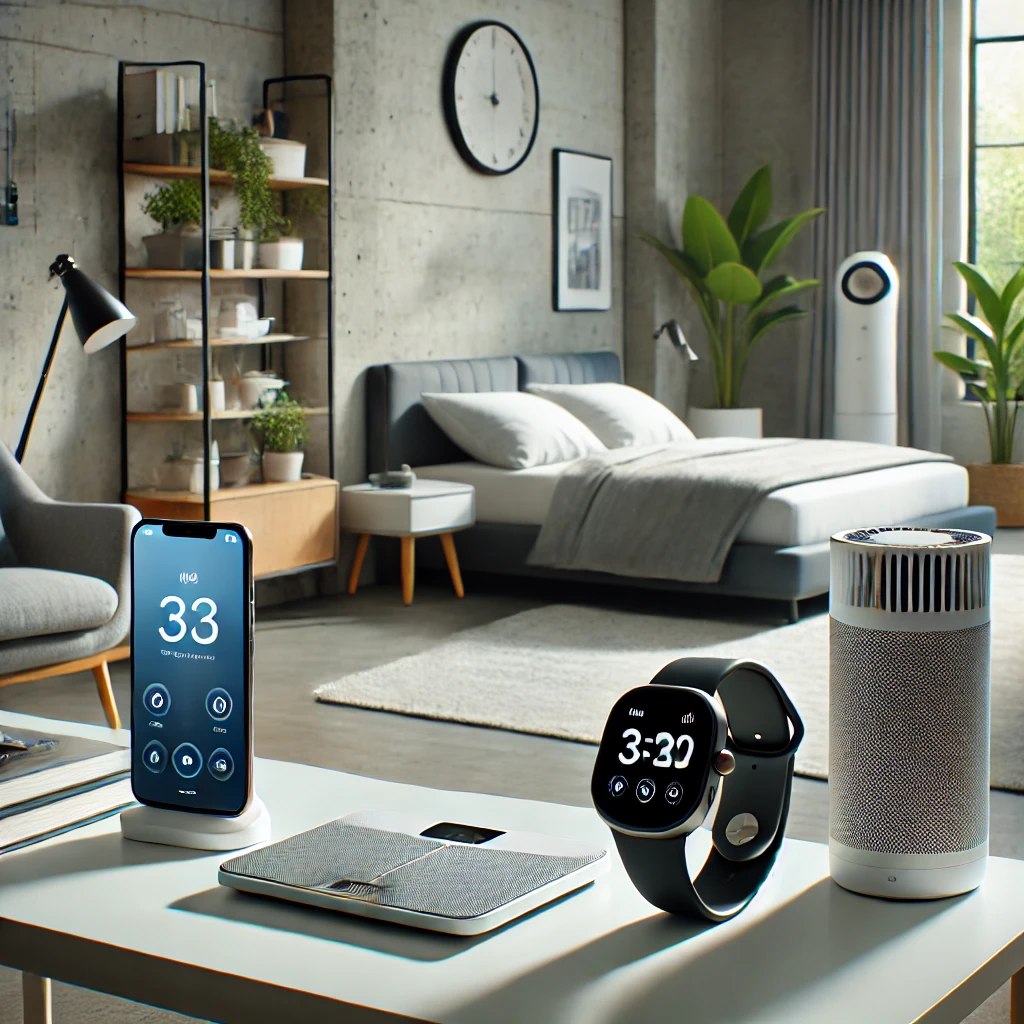Introduction: The Importance of Smart Health Technology in Modern Homes
In today’s fast-paced world, technology is playing an increasingly vital role in how we manage our health and well-being. With the advent of smart health technology, families now have more tools than ever to monitor, manage, and improve their health at home. These innovations are transforming homes into personalized health hubs, making it easier to track wellness metrics, detect early signs of illness, and maintain a healthier lifestyle. From wearable devices to smart home equipment, the integration of health technology into daily life is shaping the future of home health management.

1. The Rise of Health Monitoring Devices
The proliferation of health monitoring devices is one of the most significant trends in home health technology. Smart devices such as smartwatches, blood pressure monitors, and glucometers have revolutionized the way families can track health metrics on a daily basis.
Wearables like Apple Watch and Fitbit not only monitor heart rate and physical activity but also track sleep patterns, oxygen levels, and even detect irregular heartbeats. These devices provide real-time data that can alert users to potential health issues before they become serious problems.
For those managing chronic conditions such as hypertension or diabetes, smart blood pressure monitors and glucometers allow for seamless, at-home health tracking. With features like automatic data logging, these devices provide a convenient way to manage long-term health, share data with healthcare providers, and make informed decisions about lifestyle changes.
2. Smart Home Devices Supporting Healthier Living
Beyond wearables, the rise of smart home devices is also contributing to healthier living environments. Smart body scales, for example, don’t just measure weight—they analyze body composition, including fat percentage and muscle mass. This provides a more comprehensive view of one’s health, enabling family members to track progress over time and make adjustments to their fitness routines or diets.
Air purifiers equipped with smart technology can detect air quality levels and automatically adjust settings to remove pollutants, allergens, and harmful particles from the air. Smart mattresses are another innovative addition to modern homes, designed to monitor sleep patterns, body movements, and even temperature to ensure optimal rest. These devices take health monitoring to the next level, improving the overall wellness experience at home.
3. Health Apps and Telemedicine: The Future of Health Management
In addition to hardware, health apps and telemedicine services are revolutionizing how families approach healthcare. With mobile applications such as MyFitnessPal and Health Mate, users can log daily activities, track food intake, and monitor key health metrics in a single interface. These apps often sync with wearables and smart home devices, creating a holistic view of one’s health.
The rise of telemedicine has been a game-changer, allowing patients to consult with healthcare providers without leaving the comfort of their homes. This is especially beneficial for individuals with mobility issues or those living in remote areas. Through virtual consultations and remote monitoring, families can access medical advice and treatment more conveniently than ever before.
4. Data-Driven Personalized Health Insights
One of the most promising aspects of smart health technology is its ability to provide personalized health insights based on the data collected from various devices. As these devices gather information about daily habits, physical activity, and health metrics, they can generate customized health recommendations tailored to the individual.
For example, a smartwatch might notice a decrease in physical activity and suggest personalized fitness goals, while a sleep tracker could recommend changes to bedtime routines for improved rest. This level of customization enables family members to take proactive steps in managing their health, ensuring that each person’s unique needs are addressed.
Moreover, this data can be shared with healthcare professionals, enabling more informed consultations and accurate diagnoses. By leveraging this technology, families can work with doctors to create highly individualized health plans that go beyond one-size-fits-all approaches.
Conclusion: The Future of Smart Health Technology in Home Health Management
As smart health technology continues to evolve, its impact on home health management will only grow. The integration of wearables, smart home devices, health apps, and telemedicine is ushering in a new era where managing one’s health is more accessible, personalized, and efficient than ever before.
In the near future, we can expect even more advanced devices that provide deeper health insights, further streamlining the relationship between individuals and healthcare providers. From predictive health analytics to real-time monitoring of chronic conditions, smart health technology is set to become a cornerstone of modern home life, empowering families to take control of their health with precision and ease.
By adopting these technologies today, families can not only improve their current health and well-being but also stay ahead of future health trends, ensuring a long-lasting and healthy lifestyle.
